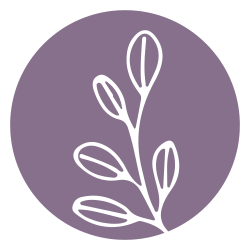Balance in TCM
Balance…
What do you think of when you read or hear that word?
Perhaps you think of staying steady on your feet (as opposed to ‘losing one’s balance’). Perhaps you think of how you spend your time, wanting to strike a better balance of activity vs rest (2025 New Year’s resolutions, anyone?).
When Chinese medicine practitioners think of balance, we think: health.
As Chinese Medicine practitioners, we talk a lot about bringing the body into ‘balance’ as the path to optimal health. ‘Balance’ is so frequently used that it’s become a buzz word. But what does it mean, exactly?
Take a moment to go deeper with me…
Traditional Chinese Medicine is an ancient practice that sees the body as an interconnected system where imbalances disrupt well-being and lead to illness. Here’s a quick look at the ways in which TCM looks at and evaluates balance:
Yin and Yang
These are complementary forces—like rest and activity or cold and heat. Health is a dynamic equilibrium between the two, and imbalances can manifest as physical or emotional issues. A symptom example of a yin/yang imbalance? Hot flashes.
Qi (Vital Energy)
Qi is loosely translated as the life force that flows through the body. When Qi is balanced and moves freely, we feel healthy and energized. Blockages or disruptions in its flow can lead to discomfort or disease. A symptom example of a qi imbalance? Muscle tension in one particular area (i.e. lower back, or neck and shoulders).
The Five Elements
Wood, Fire, Earth, Metal, and Water represent natural cycles in the body and are connected to organs, emotions, and functions. Harmony between these elements supports overall health, while imbalances can cause illness. A symptom example of an elemental imbalance? A feeling of heaviness in the limbs with sluggish digestion (Earth imbalance).
Organ Systems
In TCM, organs are more than physical structures; they all have a set of responsibilities within the body, and are linked to emotions, seasons, and more. Supporting the balance of these systems helps restore harmony to both body and mind. A symptom example of an organ system imbalance? Chronic cough or weak immune system (Lung deficiency).
These are a few different lenses, from a practitioner’s perspective, from which to assess patterns of imbalance - and then through treatment we course-correct.
Practices like acupuncture, herbal medicine, dietary adjustments, and lifestyle shifts work to restore this balance. TCM’s holistic approach sees health as more than just the absence of illness—it’s also about figuring out what we need to thrive.
If you’re curious to experience more balance and thriving in your life, we invite you to book with our acupuncturists, who would be honoured to work with you.


